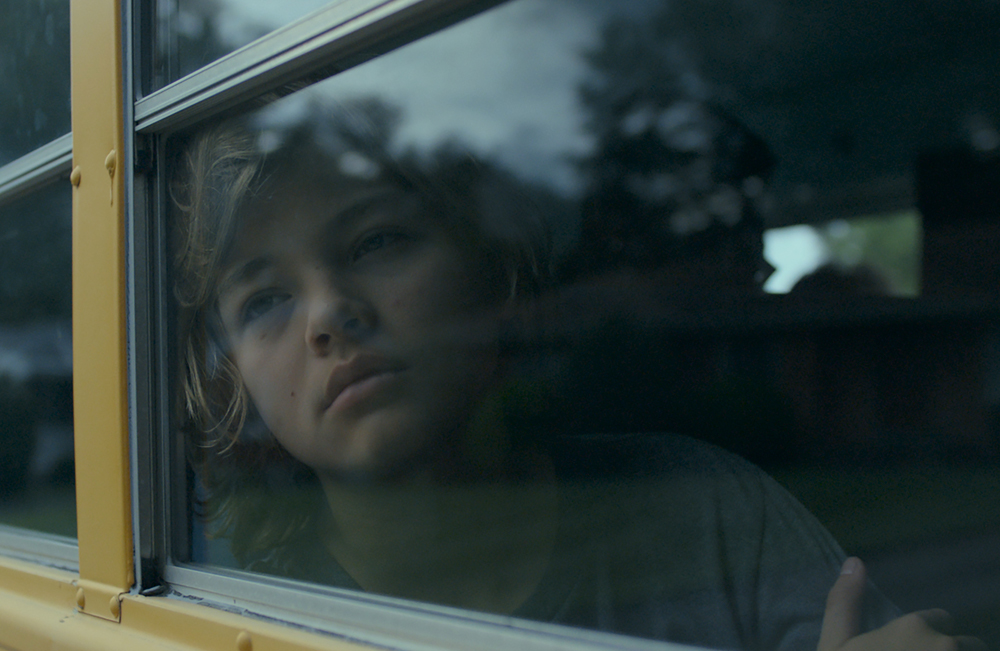With two films under his belt, it’s evident that Vincent Grashaw makes films that aren’t easy to embrace, but ring around in your head for days. After infiltrating a teen detention center for his disquieting debut “Coldwater,” tracking at-risk youths whose rehabilitation was even more egregious than whatever behavior landed them there in the first place, Grashaw’s return with “And Then I Go” may tackle even tougher subject matter, yet is too powerful and compelling to be denied.
In taking on the planning of a school shooting, “And Then I Go,” based on the novel “Project X” by Jim Shepard, who is credited with co-writing the script with Brett Haley, has a shrewd premise, centering the film on Edwin (Arman Darbo), a middle-schooler who has retreated from classmates after experiencing constant bullying at school yet isn’t as far gone as his only friend Flake (Sawyer Barth), who looks to end fights when others start them. The two come from different homes, but feel as though in their parents’ eyes, they’re equals, which is to say, not much – Flake’s parents don’t pay much attention to him since it’s likely theirs paid them no mind, while Edwin’s dad (Justin Long) is preoccupied with his work as a professor and his mother (Melanie Lynskey) tends to their younger child Gus – and in a friendship based in having no other friends, contempt for others runs deep. Still, when Flake shows Edwin that he knows where his dad’s rifles are and dismisses the Columbine shooters as “fuck-ups,” Edwin’s response is as fascinating as it is chilling, going along with his friend since he has ceased to trust anyone else but ambivalent since he hasn’t completely lost sight of the difference between right and wrong.
That Grashaw displays the deft touch he had with younger actors in “Coldwater” makes “And Then I Go” particularly effective since as stubborn as either Edwin or Flake can become, you can see how naturally mercurial they are, not yet set in their beliefs, and providing drama enough by simply conveying the moments that leave them with impressions that you can tell they’ll carry with them for a lifetime. The filmmakers have a real discovery on their hands with the arresting performance of Darbo, who superficially could be described as a shaggy-haired Leonardo DiCaprio, though any comparison would do him the disservice of suggesting there was another like him. He wears the film’s considerable weight lightly, completely credible in his occasional cockiness that Edwin uses to deflect acknowledging serious dismay while showing the vulnerability that comes from the feeling that he’s disappointing someone no matter what decisions he makes.
The same can’t said for “And Then I Go,” which demonstrates great sensitivity as it brims with confidence in the story it’s telling, bolstered by Heather McIntosh’s sumptuous score and cinematographer Patrick Scola’s strong framing choices. A supporting cast filled with actors such as Tony Hale, Melonie Diaz and Carrie Preston who are equally adept at comedy and drama prove to be inspired choices for a film in which part of what’s so unsettling is how casual it all feels and 12 years after “Project X” was published, which was just five years removed from Columbine rattled the nation, “And Then I Go” has no use for the cold sterility that became a signature of such narrative treatments of school violence since Gus Van Sant’s spare “Elephant,” instead offering a more nuanced and sophisticated view of students driven to lash out by taking the emphasis away from the eventuality of violence than the conditions all around that give rise to it. With such a considerate portrait of those who fear irrelevance, “And Then I Go” becomes unforgettable.
“And Then I Go” does not yet have U.S. distribution.





Comments 1